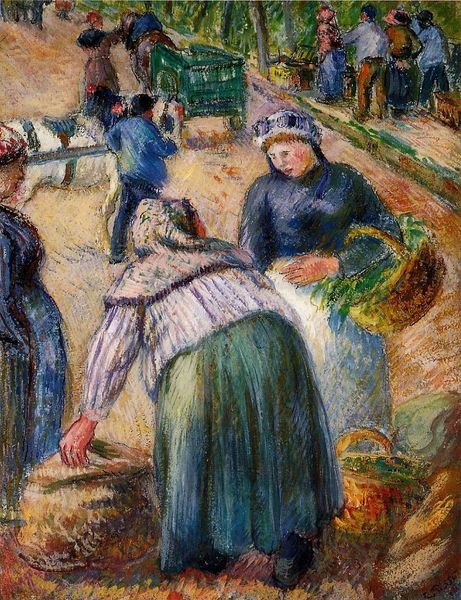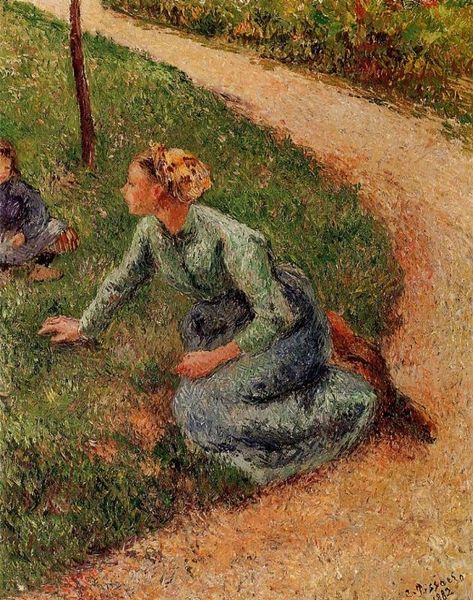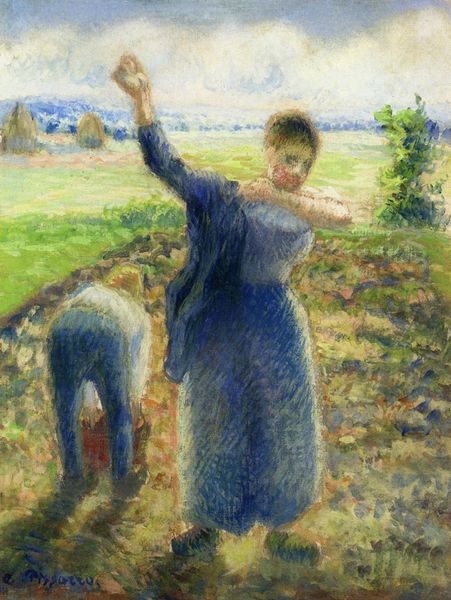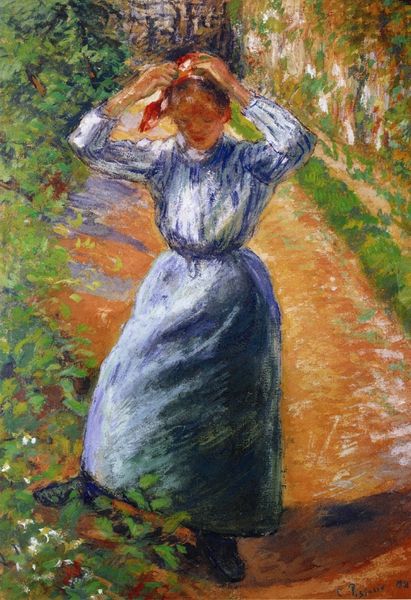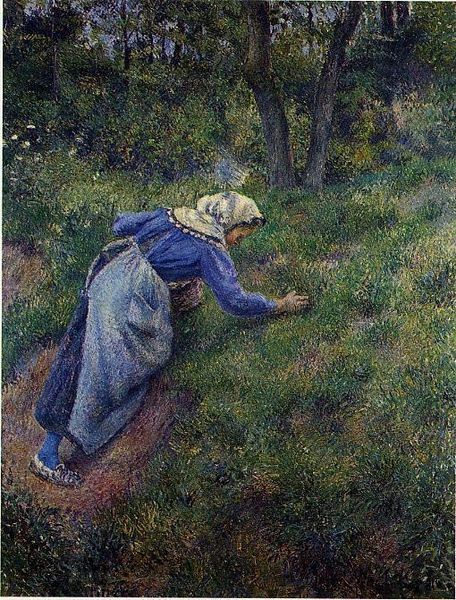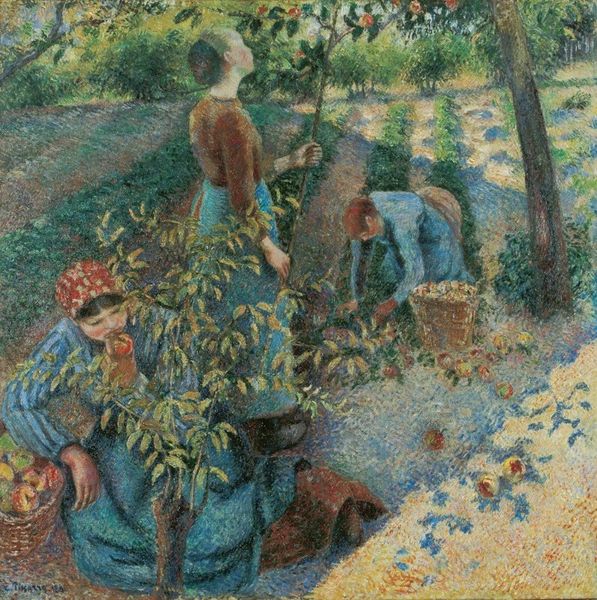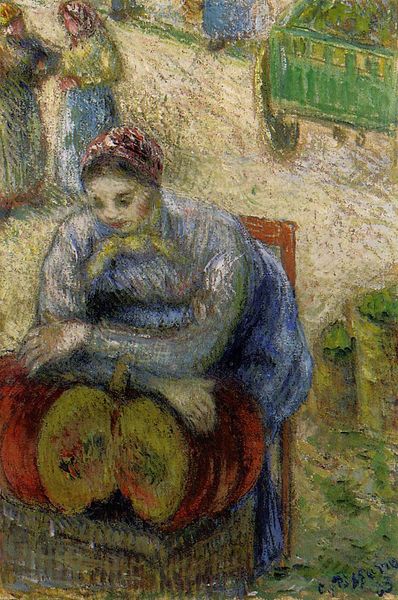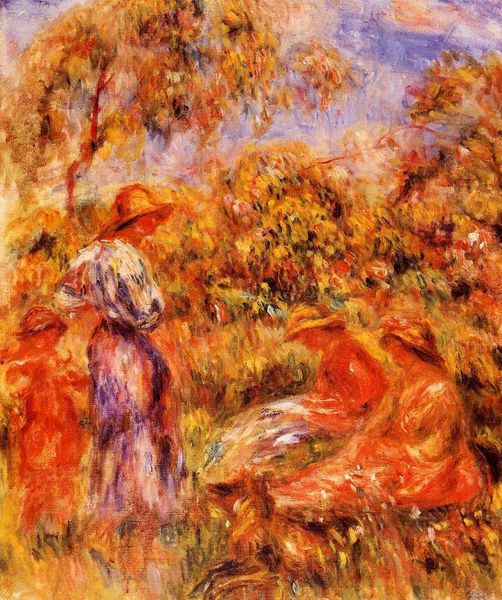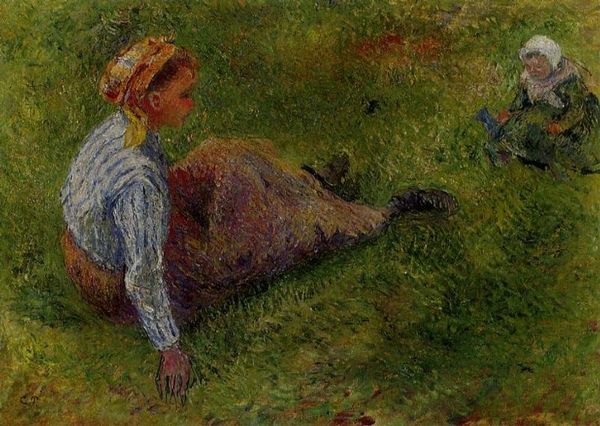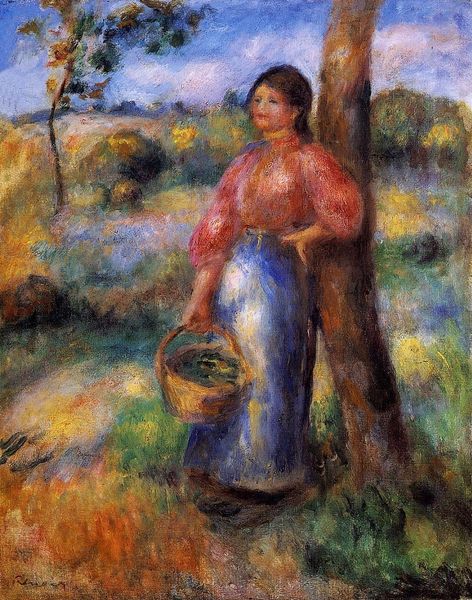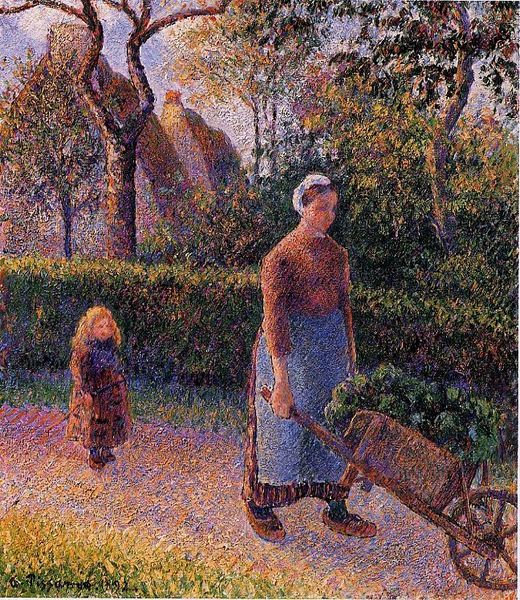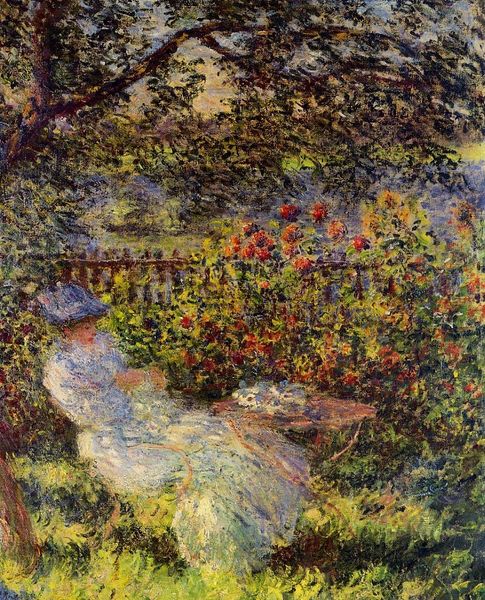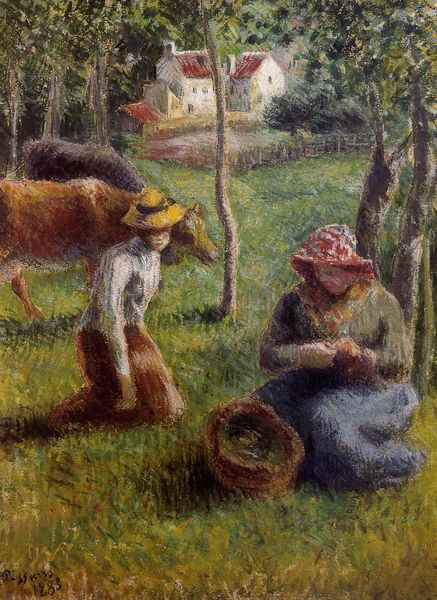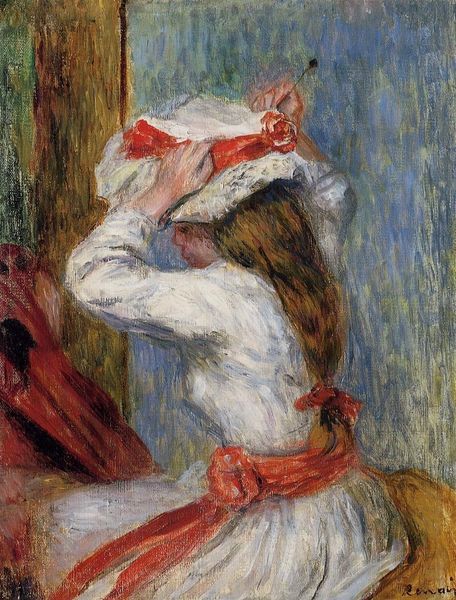
painting, plein-air, oil-paint
#
portrait
#
painting
#
impressionism
#
plein-air
#
oil-paint
#
landscape
#
impressionist landscape
#
figuration
#
oil painting
#
france
#
genre-painting
#
realism
Copyright: Public domain
Curator: Here we have Camille Pissarro’s "Peasants Harvesting Potatoes," an oil painting from 1882 currently held in a private collection. It just strikes me as...solid. Earthy, perhaps unsurprisingly given the subject. A very grounded composition. Editor: Yes, “grounded” is the perfect word. I'm drawn to the physicality of the work – the thick brushstrokes, the sense of the artist right there in the field with the women, recording their labor. How does Pissarro represent these figures? Curator: Pissarro paints the figures in working-class attire with red kerchiefs, conveying their physical labor and connection to the land, particularly interesting since peasant women were essential contributors to agricultural economies, often overlooked in societal power structures. What do you make of the material properties of potato farming? Editor: Absolutely! We can practically feel the rough texture of the earth and the weight of the potatoes in the baskets. It highlights how agricultural production directly shaped the lives of these women, not just their economic reality, but also their physical being. Also the repetitive, strenuous motion of the labor… you can almost feel that reflected in the paint application. Curator: He doesn’t romanticize rural life. The painting captures a very honest, unvarnished version of women's labor and class at that time. Pissarro doesn’t shy away from presenting this harsh reality. What implications does this imply for discussions around feminist theory in nineteenth century French rural paintings? Editor: Indeed. His choices regarding both the means of production, through Impressionistic brushstrokes, and the social realities, by focusing on female labor, are fascinating and provide so many questions. What kind of paint did he use? Who supplied it, and who mixed those earthy tones that so powerfully convey this sense of working in the dirt? Curator: I agree, the dialogue around feminist contributions and discussions on material components opens new avenues. Thanks for enriching my viewpoint. Editor: The pleasure was mine, truly a profound perspective on daily labor and materiality.
Comments
No comments
Be the first to comment and join the conversation on the ultimate creative platform.
